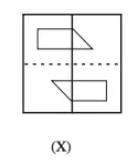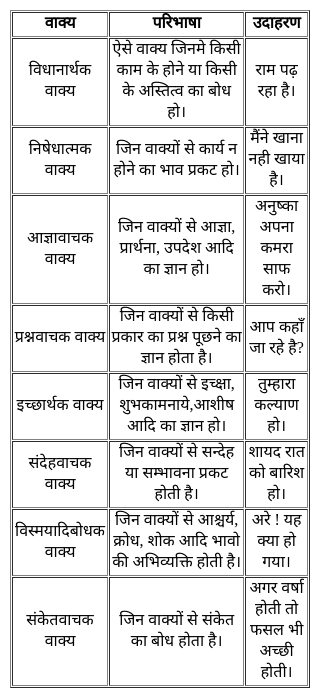HTET TGT Social Studies Mock Test - 7 - HTET MCQ
30 Questions MCQ Test - HTET TGT Social Studies Mock Test - 7
Which of the following should be considered the most important quality of a teacher at primary level?
The stage in which a child is begin to think logically about objects and events is known as:
Which of the following statements is true about assessment of learning as per RTE Act 2009 ?
'जब तुम आओगे तब वह खाना खायेगा ' रचना के आधार पर वाक्य भेद बताइए।
निम्नीलिखित प्रश्न में, चार विकल्पों में से, क्रिया का सही रूप वाला विकल्प पहचानिए।
शायद कल मीरा दिल्ली _________। (जाना – संभाव्य भविष्यत काल)Direction: Choose the option closest in meaning to the OPPOSITE of the word given in capitals.
FERVENT
32 boys and 40 girls spend an average amount of Rs. 400. If the average amount spent by each boy is Rs. 500, what is the average amount spent by each girl?
'Ophthalmia' is related to 'Eye' in the same way as 'Rickets' is related to:
Direction: If a Paper (Transparent Sheet) is folded in a manner and a design or pattern is drawn. When unfolded this paper appears as given below in the answer figure. Choose the correct answer figure given below.
Find out from the four alternatives as how the pattern would appear when the transparent sheet is folded at the dotted line.
Question Figure

Answer figure

The positions of how many digits in the number 837912 will remain unchanged after the digits within the number are rearranged in descending order (from left to right)?
Civil Rights are given to the individual by:
Why was Nelson Mandela sentenced to life imprisonment?
When does the cold season recognise in India?
It is an area of land formed at the mouth of the river
What is the role of the tertiary sector in the economy?
Who among the following is a pivotal figure in establishing Tibetan Buddhism and is often called the second Buddha?
Jains believe that the universe's natural and supernatural things can be traced back to seven fundamental elements. They include
1. Jiva
2. Vinijja
3. Kshati
4. Samvara
5. Nirjana
Select the correct answer using the codes below.
Which of the following statements is/are correct?
_____ are suitable for agriculture, settlement and transportation
The local assemblies under the Cholas enjoyed a great amount of autonomy and enjoyed several privileges and power unknown to other assemblies. Which one of the following powers was not enjoyed by the village assemblies under the Cholas?
Where did the Romans trading with Sangam kingdoms built a temple of Augustus?























